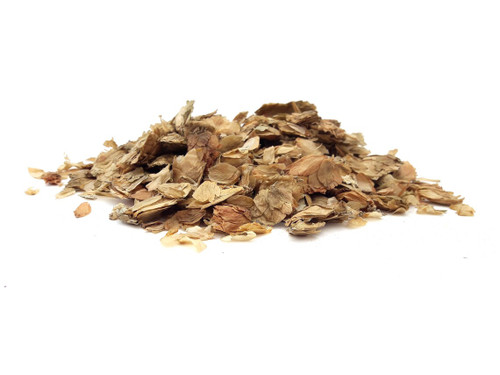Burg Sudaab whole herb 50g
Garden rue, also known as common rue, herb-of-grace, or Ruta graveolens, is a perennial herb native to the Mediterranean region. In some regions, it's referred to as "Barg-e-Sadab" in Persian or Urdu. Here's some information about garden rue:
-
Appearance: Garden rue typically grows up to 60-100 cm (24-39 inches) tall and features bluish-green foliage with pinnate leaves composed of multiple leaflets. It produces small yellow flowers in clusters, followed by small fruits containing seeds.
-
Cultural and Historical Significance: Garden rue has a long history of use in various cultures and traditions. It has been valued for its medicinal properties and used in folk remedies for conditions such as digestive issues, menstrual problems, eye ailments, and more. Additionally, it has been used as a culinary herb and in religious ceremonies.
-
Medicinal Uses: In traditional medicine systems like Ayurveda and traditional Persian medicine, garden rue has been used for its potential medicinal properties. It has been used as a digestive aid, diuretic, emmenagogue (to promote menstruation), and to alleviate symptoms of colds and fevers. However, it's essential to use garden rue with caution, as it contains compounds that can be toxic in high doses.
-
Culinary Uses: While garden rue is not as commonly used in modern culinary practices, it has historically been used as a flavoring agent in certain dishes and beverages. Its bitter and pungent taste is attributed to various compounds, including alkaloids and essential oils.
-
Garden Ornamental: In addition to its historical and medicinal uses, garden rue is sometimes grown as an ornamental plant in gardens for its attractive foliage and delicate yellow flowers. It can be cultivated in well-drained soil and prefers full sun to partial shade.
-
Precautions: Garden rue contains compounds known as furocoumarins, which can cause photosensitivity and skin irritation in some individuals. Ingesting large quantities of garden rue can also be toxic and may cause symptoms such as vomiting, diarrhea, and convulsions. Pregnant women should avoid garden rue due to its potential abortifacient effects.








